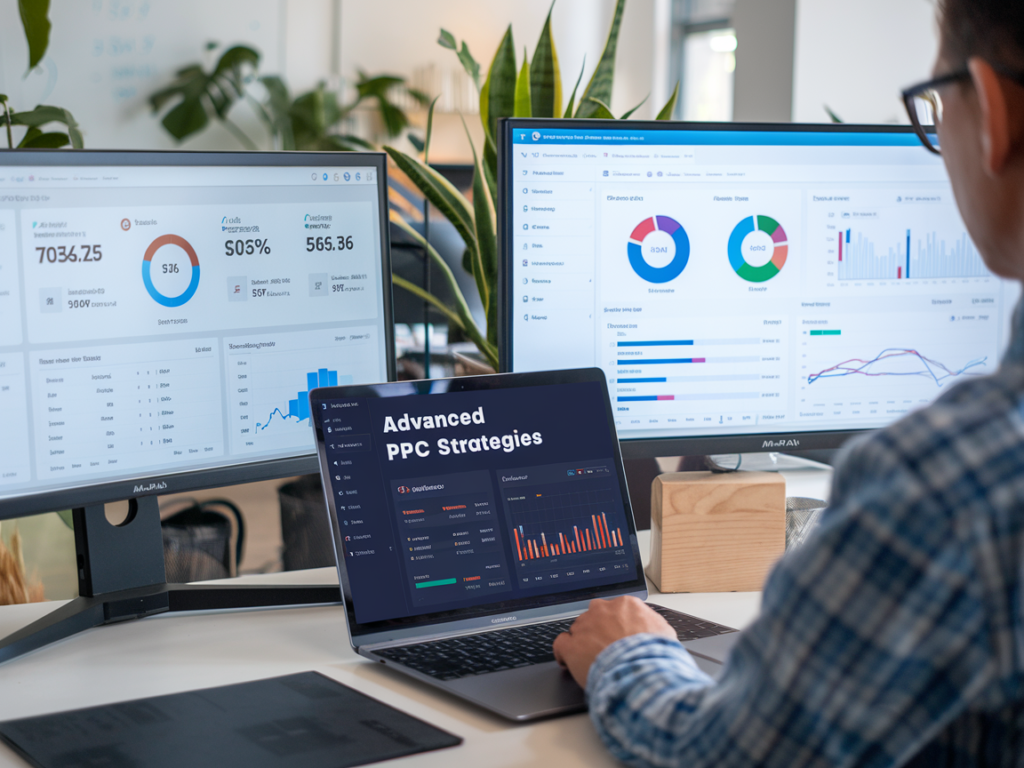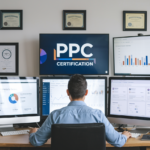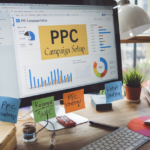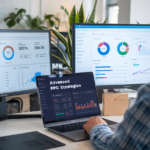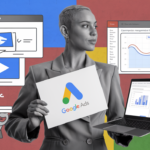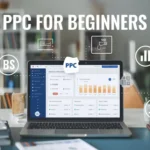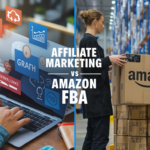Advanced PPC Strategies: Unlocking Maximum ROI in 2025
The years have seen Pay-Per-Click (PPC) advertising grow into a comprehensive tool which requires more than just the fundamental strategies. The goal is easier to state than achieve: in today’s highly saturated digital landscape, simple tactics for achieving high levels of performance are insufficient. If a business is to achieve high levels of competitiveness and gain high returns on its investment, it needs to adopt Advanced PPC Strategies that uses superior tools, techniques and innovations and enhanced technologies. Said eBook checklist will act as a roadmap in improving PPC as it provides the understanding on how to attune every aspect of PPC for achieving highest level of success.
Understanding Pay-Per-Click (PPC)
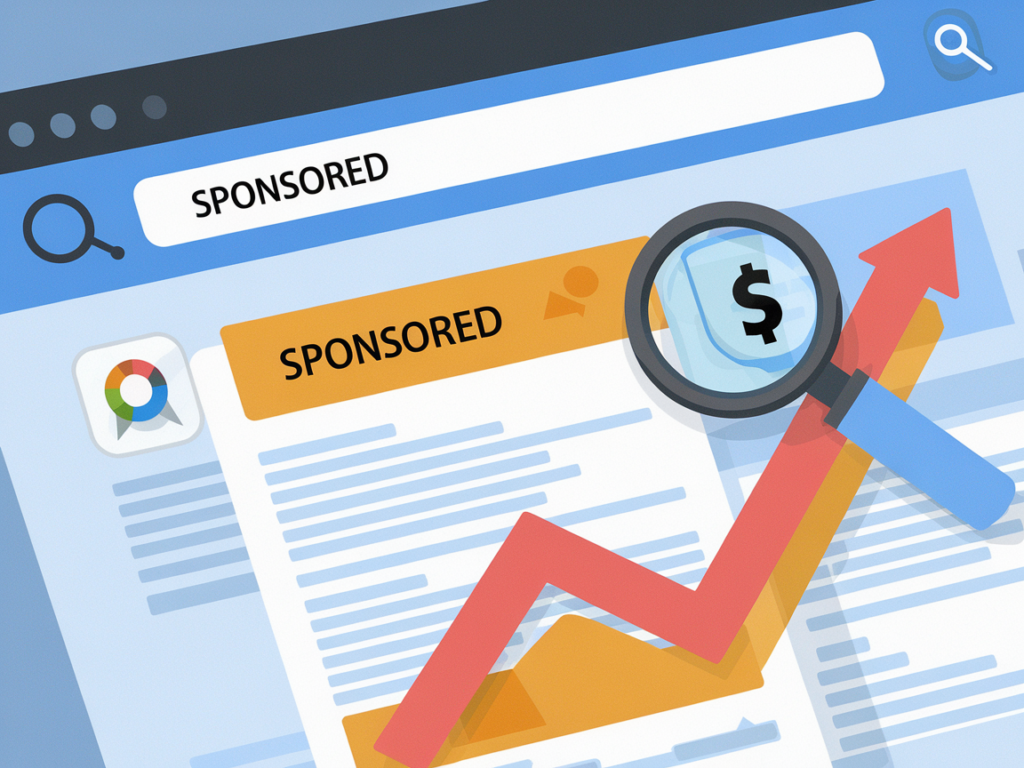
PPC is an online advertising strategy where an advertiser pays the publisher each time his advert is clicked. This is one of the most quantifiable marketing techniques available to help businesses reach consumers straight away. Here are the core components.
- Targeted Audience Reach: PPC enables organizations to make advertisements to users who are interested in searching for a specific product or service.
- Performance-Based Payments: PPC is highly efficient because advertisers only pay for actual interaction; for instance, a click.
- Rapid Results: While organic strategies, such PPC, needs more time to show results, it offers brand visibility and traffic instantly.
Why Advanced PPC Strategies Matter
More advanced techniques have continued to be employed as digital markets become populated by so many firms. Here’s why:
- Evolving Market Trends: PPC is dynamic because there is a continuous evolution of the algorithms, tools and users across the internet.
- Rising Competition: Their are more companies adopting the use of PPC thus the need to make your PPC campaigns to be unique.
- Maximized ROI: Complex techniques mean that only he appropriate audiences for the products are reached, the corresponding resources are expended, and more conversions are achieved.
Audience Targeting Techniques
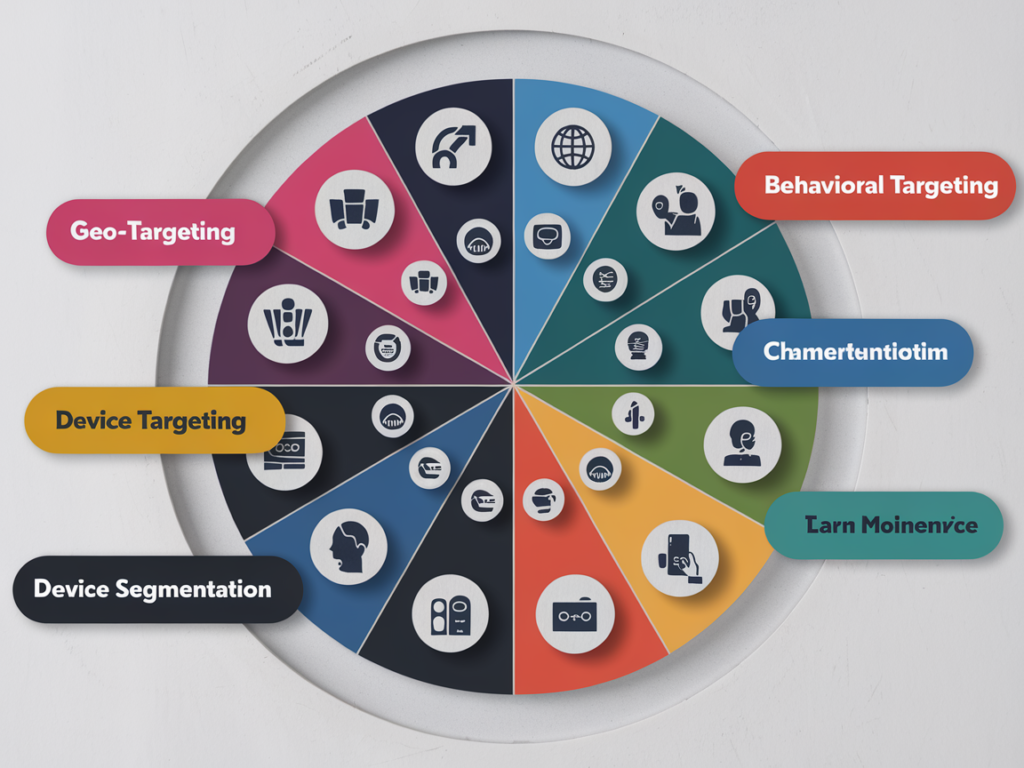
Specific target sets the right customer base before one’s ad and is an efficient way of marketing.
Behavioral Targeting:
Because the user’s activity, including the history of visits to the site, the purchase of products, and the use of social networks can be analyzed, the advertisements can be focused on the users.
Geo-Targeting:
Geographical targeting is useful for local business or specific regional marketing crusades. Some ad platforms such as Google Ads permit advertisers to choose a country or city, or even circles around a particular place.
Device Segmentation:
It is imperative to design ads according to the gadgets that the clients are using. Mobile users may prefer less graphics and flash to work and also they may take less time as compared to the desktop users.
Using Buyer Personas:
Thus, the ad developmental procedure is improved through the refined targeting precision and performance of ads that employee condition accurate and well-defined buyer personas based on demographic, psychographic, and behavioral information.
Keyword Research Mastery
This way keywords lay the groundwork of any PPC campaign by being the core ingredient that triggers traffic and conversion. A great number of PPC experts define Advanced PPC Strategies as the further step in keyword management connected with its selection and application as the key component of the PPC campaign. These strategies take the principles of user intent to a whole new level, using very effective keywords and cultivating a perfect list of keywords for the best outcomes.
Long-Tail Keywords:
These are concrete, several-word terms that people type to search for, but which attract fewer visitors yet convert well. For example, buy eco friendly yoga mats targets those who like to do yoga on mats that are friendly to the environment.
Negative Keywords:
Elimination of insignificant keywords avoid a bust, that is, would-be clicking traffic but does not generates sales. For example, a luxury hotel may opt out on the words like ‘cheap’ and ‘budget’ for its advertising.
Competitor Keyword Analysis:
By using SEMrush or Ahrefs you are able to see what keywords your competitors are ranking for that can provide essential information about your campaigns.
Crafting Effective Ad Copy
Ad messages determine click through rates ‘CTR’ and conversion accordingly. Here is how you can make your ads unique :
Headline Best Practices:
Some of the most suited headlines should be in numbers or questions or any special offer displayed. For instance, “Buy Premium Software Today at 30% Disoretical Price”.
Personalization and Emotional Appeals:
It is therefore important that when conveying a message, the message is made to be emotional and correspond with the need of the audience. Such words as ‘Transform, Your Daily Commute’ – appeal to dreams.
A/B Testing Insights:
Conduct A/B tests in order to compare two different ad creatives. Recent post, share image, call to action or headline to experiment what works best.
Advanced Bidding Strategies
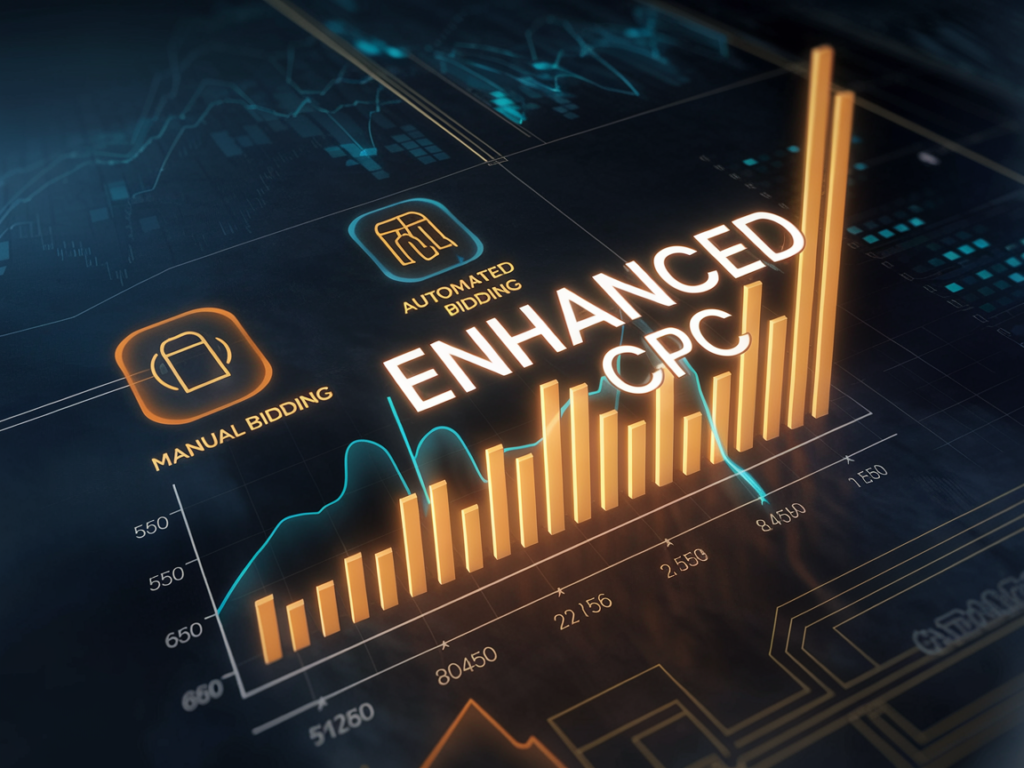
Optimizing your bidding strategy ensures you’re spending wisely while maximizing results:
Manual vs. Automated Bidding
- Manual Bidding: Permits total control over CPC, though, it should be monitored on a continuous basis.
- Automated Bidding: Can utilize artificial intelligence and rely on performance goals when it comes to bids.
Enhanced CPC and Target ROAS
- Enhanced CPC: Fine tunes pay-per-click bids for clicks which are likely to convert.
- Target ROAS: Based primarily on the target return on ad cost to essentially aim at the greatest possible revenues.
Portfolio Bid Strategies
These strategies allow for the management of numerous campaigns, but within a single budget.
Landing Page Optimization
Although, the post-click experience of the user is significant as the ad being built for any platform. Here are key considerations.
Designing High-Converting Pages
Utilize design best practices throughout the webpage and make sure the CTAs are easily located based on their color.
Reducing Bounce Rates:
Ensure that the landing page aligns with the ad message and offer you have to give to your consumers.
Mobile Optimization:
Due to high traffic from mobile devices, load speeds and mobile-friendliness are obligatory parameters for all web platforms.
Utilizing Ad Extensions
Ad extensions provide additional information, enhancing ad visibility and CTR:
Types of Extensions
- Sitelink Extensions: They should guide visitors to certain pages.
- Callout Extensions: On the Internet, you should emphasize specific features or promotions.
- Structured Snippets: Advertise a product or a series of products or a particular service.
Maximizing CTR with Extensions
Hence, the use of multiple extension at the same time gives a user many reasons to come on the platform.
Remarketing and Retargeting

Bringing back users who didn’t convert on their first visit is vital:
Dynamic Remarketing
This involves placing ads in relativity to products and page viewed in the past by a user.
Cross-Platform Retargeting
Guard against everything being delivered in the different platforms such as Google, Face book and instagram all appearing alike.
Timing and Frequency Issues.
users started the process exposed to a high amount of advertisements, don’t retarget them frequently; do it stepwise.
Leveraging AI and Automation
AI tools simplify complex PPC processes, enhancing efficiency:
Predictive Analytics
Unlock campaign outcomes by using the campaign data previously recorded.
Smart Campaigns
Self-serve through programmatic buying for ad placement, creation, and click-bid optimization.
Machine Learning for PPC
Such algorithms study people’s activities to improve targeting and ads itself.
Measuring Campaign Success
Tracking performance metrics ensures continuous improvement:
Key Metrics to Track
- CTR: Measures ad relevance.
- Conversion Rate: Records the number of clicks that leads to a required action.
- Quality Score: Such as, ad relevance that consist of the sum of overall relevance of the landing page and assumed CTR.
Google Analytics Integration
Such integration of both the data sets allows for understanding further behavior of users based on PPC data along with Google Analytics.
Budget Optimization
Efficient budget management maximizes ROI:
Allocating Budgets by Campaign Goals
Targeted budget that can be awareness, traffic or conversion based.
Effective Strategies of Scaling up at a Lower Cost
Spend more money on channels that provide good ROI and cut spending on those channels that offer poor ROI.
Avoiding Common PPC Pitfalls
Addressing potential issues ensures campaigns run smoothly:
Overcoming Ad Fatigue:
To keep users engaged the ad creatives should be updated often.
Managing Click Fraud:
ClickCease is another service which can help to identify fake click-throughs.
Addressing Budget Overspends:
This is best managed by setting daily spending limits, and keeping a watchful eye on any costs which will administration unwanted expenses.
Future Trends in Advance PPC Strategies
Stay ahead by adapting to upcoming developments:
Voice Search Optimization
It rapidly requires the key phrase itself, thereby making it possible to optimize the ad for voice queries that are conversational.
AI-Driven PPC Campaigns
Forecast more use of software applications and more sophisticated dynamics.
Visual and Video Ad Innovations
Choose inviting and engaging user experiences to get that attention.
FAQs on Advanced PPC Strategies
What is the greatest strength of modern PPC approaches?
AdvertisingOverPers Advanced strategies enhance the targeting and ROI since they run on unique tools and techniques.
How does AI impact PPC?
AI improves productivity because tasks are done automatically while utilizing accurate forecasts.
What are negative keywords?
Among the terms included in the campaign, there are terms that are avoided so that clicks that are deemed unimportant and which will only increase costs are avoided.
How do I optimize ad copy?
Concentrate on customization and appeal to more ‘emotions,’ and split testing.
Why is retargeting important?
They bring back those people who once engaged themselves with a specific brand, which in turn enhances the probability of conversion.
The next question of interest is what counts as success as measured by what KPIs?
CTR effective conversion, and quality score remain relevant as key performances indicators, Metrics, and indicators are important factors.
Conclusion
Advanced PPC Strategies provides techniques on how businesses can fully benefit from their advertising through the right use of certain innovations and trends. Thanks to these techniques, you can more accurately target the audience, adjust the advertising budget in order to improve the efficiency of the outcomes received in the|,
In other words, through the use of these techniques, you will be better positioned to provide an effective focus in targeting audiences and increasing advertising spend for the improvement of campaign results. Sustaining these strategies not only increases ROI but also guarantees a firm a competitive edge given the ever evolving digital advertising environment. Begin using these new strategies today to unleash unprecedented success and create steady marketing progress now.

